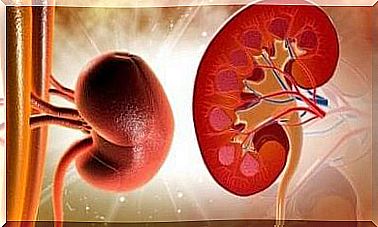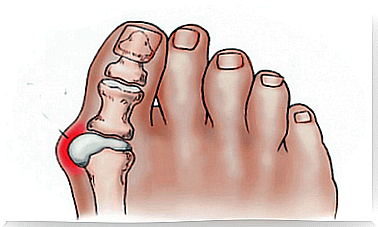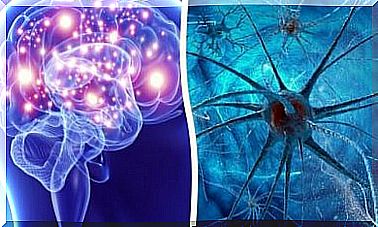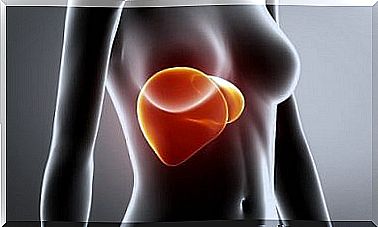Fibromyalgia – Mysterious Pain
The cause of the disease is not yet known. One thing is certain: those affected suffer from pain and are often diagnosed very late
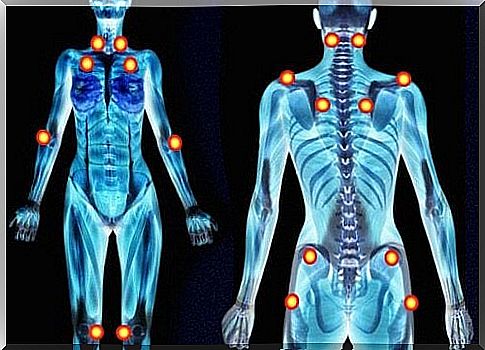
It is often like a doctors marathon until those affected know why they are suffering from mysterious pain that cannot be assigned to any real cause. It often takes a long time for those affected to come up with a name for their symptoms: fibromyalgia.
What is fibromyalgia?
Fibromyalgia is a foreign word which, loosely translated, means “fiber-muscle pain” and thus gives a good description of the clinical picture in the name.
Those affected have pain in various parts of the body, which are accompanied by exhaustion, tiredness and also concentration and sleep problems.
Because these symptoms accompany so many diseases, it is still difficult to diagnose this disease to this day.
Unfortunately, there is no explicit test for fibromyalgia, which is why many sufferers often have a very long “doctor’s marathon” behind them before the diagnosis is finally definitive.
In Germany, around three percent of the population suffer from this disease, which still leads a shadowy existence.
The good news: muscles, joints, bones and soft tissues do not change as a result of the disease, so you do not have to worry about fibromyalgia becoming a need for care or being restricted in your movement.
Fibromyalgia remains a medical mystery to this day that, despite research, has not yet been solved.
What are the symptoms of fibromyalgia?
Here we show you the symptoms behind fibromyalgia. If you have observed these symptoms for at least three months, then you should inform your doctor about fibromyalgia.
Since many of the symptoms mentioned mostly have completely different causes, the “core symptoms” pain, tenderness at tender points and fatigue must always be present in order to diagnose fibromyalgia!

Pain “everywhere”
Most of the time, the pain occurs in the neck or back and lasts at least three months, whereby it can be felt almost every day. However, the pain often depends on the form of the day, time of day, weather and other external factors such as stress.
The chest, abdomen, arms, and legs are also affected by inexplicable pain. The pain occurs in different parts of the body, at least in two different areas at the same time.
In order to find out exactly which pain torments you where and for how long, it is best to keep a pain diary, which you can present to your doctor for a better diagnosis and which gives yourself a good overview.

Change in psyche
Many fibromyalgia patients also suffer from psychological symptoms such as depressive moods, fears, listlessness or inner restlessness. Around 30 percent of those affected by fibromyalgia develop real depression.
Others develop an anxiety disorder in addition to fibromyalgia. It has not yet been researched whether these psychological changes are triggered directly by the disease, whether they promote the development of the disease, or whether they are only side effects of the disease.
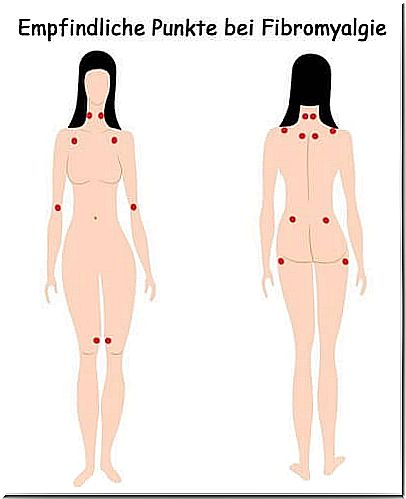
Pressure-sensitive “tender points”
Anyone who suffers from fibromyalgia is particularly sensitive to pressure and pain at precisely defined points, the so-called “tender points”. There are 18 of them in total.
Anyone who is particularly sensitive to pain at at least 11 of these tender points could suffer from fibromyalgia. These 18 points are always at the transition between the muscles and the tendons.
To diagnose fibromyalgia, the doctor will irritate these (as well as some other points) on your body.

Tingly legs
Many fibromyalgia sufferers then also suffer from Restless Leg Syndrome, which causes tingling in the legs, especially at rest, which can only be relieved by movement.
This is an additional factor that disrupts falling asleep and staying asleep and leads to even greater tiredness with all the consequences such as difficulty concentrating.

Excessive tiredness and exhaustion
Exhaustion and permanent tiredness with persistent sleep problems are other very common symptoms of fibromyalgia. Sleep is usually very light and patients wake up frequently. People also suffer from sleep apnea more often.
Breath pauses occur when snoring at night. It is difficult to fall asleep, although lead tiredness accompanies the patient for days, weeks and months.

Impaired digestion
Symptoms of irritable bowel syndrome with repeated abdominal pain, as well as episodes of cramps, diarrhea, or constipation are common. Irritable stomach and irritable bladder are also symptoms, but do not always have to be present to diagnose fibromyalgia.
What helps?
Unfortunately, there is no therapy available to cure the disease. There are only different medications to alleviate the individual symptoms, for example pain relievers for pain, probiotics for diarrhea, etc. Unfortunately, those affected have to learn to cope with their life with the disease.
